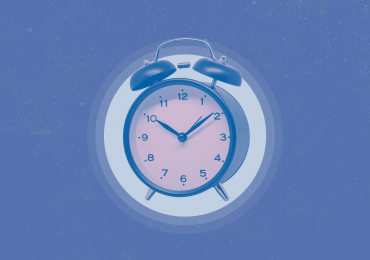By KIM BELLARD
So the House has passed their “big, beautiful bill,” by the narrowest of margins. Crucial to the bill are large savings from Medicaid, which in past years Republicans would have taken some glee from but now they are careful to explain away as just cutting “waste, fraud and abuse,” having finally realized that many MAGA voters depend on Medicaid.
Much of those savings come from proposed work requirements for Medicaid recipients, long a favored Republican tactic that the Biden Administration kept rejecting. Speaker Mike Johnson is very vocal about their importance. The people impacted by the work requirements, he insisted on Face the Nation:
If you are able to work and you refuse to do so, you are defrauding the system. You’re cheating the system. And no one in the country believes that that’s right. So there’s a moral component to what we’re doing. And when you make young men work, it’s good for them, it’s good for their dignity, it’s good for their self-worth, and it’s good for the community that they live in.
He’s convinced that, instead of working, too many of them – especially young men – “playing video games all day.” He and other Republicans want to return Medicaid to what they see as its original purpose: “It’s intended for young, you know, single, pregnant women and the disabled and the elderly,” Speaker Johnsom said. “But what’s happening right now is you have a lot of people, for example, young men, able-bodied workers, who are on Medicaid. They’re not working when they can.”
He’s generally right that, for most of its existence, Medicaid was not truly a program for the poor so much as for certain kinds of poor people, especially low income pregnant women and children, and the medically impoverished. It took Obamacare to widen coverage to all people under the poverty line, although the Supreme Court allowed states to decide if they wanted to do so, and ten states still have not.
It is, indeed, a moral question, just not the kind that Speaker Johnson likes, about whether there is a moral imperative to give more people, especially poor people, health coverage.
The issue of these non-working Medicaid recipients is something of a shibboleth. Kaiser Family Foundation, for example, found “that 92% of Medicaid adults are either working (64%) or have circumstances that may qualify them for an exemption.” A 2023 CBO analysis cast doubt that such work requirements wouldn’t have much impact on the number of Medicaid recipients working. Work requirements are a solution in search of a problem.
What we do know about work requirements, from waiver programs in Arkansas and Georgia, is that they do, indeed, reduce the number of people on Medicaid, but largely by making it more difficult to verify eligibility. The requirements are confusing, the processes the recipients/potential recipients have to follow are cumbersome, and the mechanisms required to oversee them are expensive (or, depending on your perspective, lucrative for some vendors).
It’s not about getting able-bodied people on Medicaid to work, and it is not about “waste, fraud and abuse;” it’s about getting fewer people enrolled in Medicaid.
The calls to return Medicaid to its original purpose seem very self-serving. Medicare, for example, did not originally cover people with ESRD or disabled people under 65. Social Security did not originally cover farm workers or self-employed workers, and didn’t include benefits for disabled people or survivors of retired persons (spouses and children). We could save lots of money by returning those programs to their original purposes, but those are bridges that Republicans are not ready to cross…yet.
If we think Medicaid is not the right program for many poor people, well, that’s a fair discussion. Medicaid has more than its share of problems, not the least of which are low reimbursement rates in most states and a resulting lack of participating health care providers. Many poor people might, indeed, be better served by just letting them enroll in an ACA plan.
Unfortunately, though, ACA wasn’t designed for poor people, Its premium subsidies and cost sharing reductions do not apply to people with incomes under the federal poverty level. It was assumed that such people would all be covered by Medicaid expansion. Sure, low income people could get an ACA plan, but it is hard to see how they could afford the premiums or to pay deductibles/coinsurance amounts for care they might receive.
Maybe those low income, videogame playing young men could get jobs, but there’s a good chance their employers wouldn’t offer health insurance, or, even if they did, the required employee premium contribution would be unaffordable, or they could try to get an even more unaffordable ACA plan. For better or for worse, in the convoluted system we have Medicaid is the best place for them.
The moral component that Speaker Johnson and others – many of whom profess to be devout Christians – seem to miss is that in the richest country in the world no one should not get the health care they should have due to its cost. The best way the U.S. has found to try to achieve that – and it is a wildly imperfect solution — is to get more people covered by some form of health insurance. ACA cut the number of those without insurance almost in half, but that still leaves almost 30 million people without coverage.
The ”big, beautiful bill” is estimated to add another 10+ million people to the ranks of the uninsured, most but not all of whom would come from people losing Medicaid coverage. It could also, oh-by-the-way, further cripple safety net hospitals and professionals, further exacerbating the impact.
So when you hear Republicans talk about “waste, fraud and abuse” in Medicaid, what they’re saying is that some people do not deserve to get health care (similar SNAP cuts mean some people don’t deserve to eat). I have a hard time with that, and I don’t even need to check my Bible to be pretty sure it’s morally wrong.
Whether or not those people are playing videogames.
If they want to go after fraudulent billing, overtreatment, kickbacks, and so on, yeah, I’m all onboard for targeting those kinds of waste, fraud and abuse. But kicking poor people when they’re already down, no.
Kim is a former emarketing exec at a major Blues plan, editor of the late & lamented Tincture.io, and now regular THCB contributor
Leave a comment




